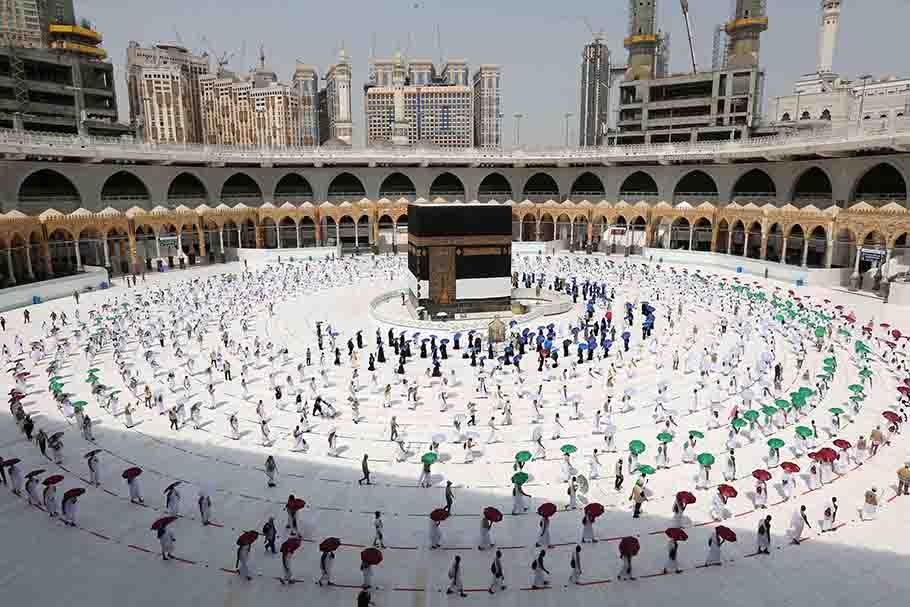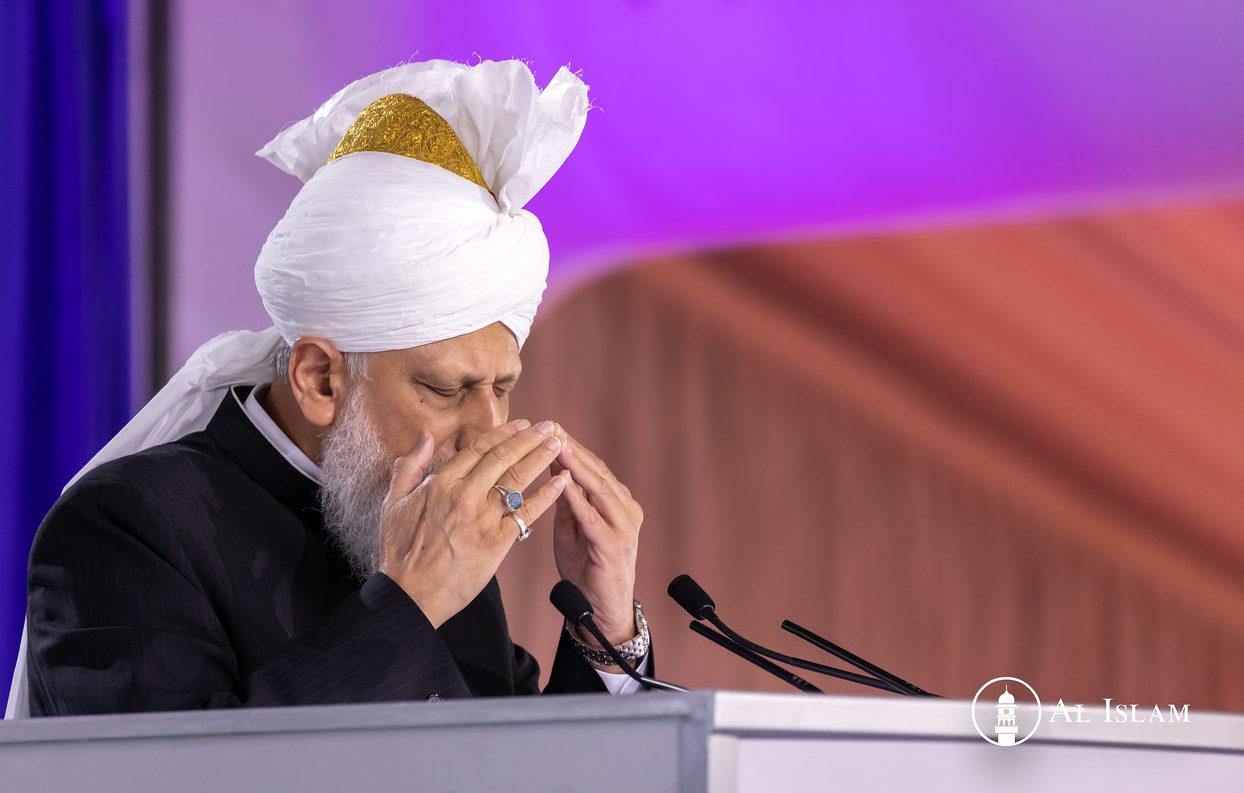As homes became mosques, the pandemic has proved how Islamic teachings are applicable in changing circumstances. The downscaling of this year’s Hajj pilgrimage further establishes this truth.
HUSAM AHMED
JULY 31, 2020
As this year’s Hajj proceedings began, a mixed emotion of disappointment and acceptance sparked in the hearts of Muslims around the world; the reason being that the holy pilgrimage is not being carried out in the grandeur it normally used to be.
Hajj, one of the largest religious gatherings in the world with around 2.5 million Muslims participating in it every year, has been downscaled this time to a mere 1000 pilgrims over concerns due to the COVID-19 pandemic.
Following weeks-long speculations, Saudi Arabia had earlier announced its decision not to cancel Hajj but informed that only a very small number of Muslims will be able to perform the pilgrimage, with no one from outside the country being able to attend the sacred gathering.
Though this is not the first time in the past fourteen centuries that this holy ritual is interrupted, to witness such an instance in real life is a completely different experience rather than recollecting the events of history in one’s mind. And maybe, for this reason, the news weaved a web of sadness around the Muslim world.
Instead of the usual ocean of people flowing around the Ka’bah, footages of a handful of Muslims circumambulating the holy site, wearing face masks, maintaining social distance may seem like a loss of glory at the primary glance, but is in reality a spectacular demonstration of the universal nature of Islam.
The current situation has amply shown that Islam possesses that needed element of flexibility, which allows its followers to perform their religious obligations with the changing conditions of the time. From the permission to use prohibited things when circumstances demand, to the provision of modifying religious practices in view of compelling situations, each and every commandment of Islam testifies to its universal nature.
For over a quarter of a year, with the pandemic disrupting man’s social activities, a Muslim never had to forgo his religious obligations. The announcements of “pray from your homes” and the sight of houses becoming mosques have proved enough this point; nevertheless, this year’s Hajj has become a spectacle of Islam’s universality for the world audience.
Islam backs the decision
While many worldly institutions including WHO (the World Health Organization) commended Saudi Arabia for the hard choice it made, no less sensible a decision was to be expected from a country claiming to be following the Islamic principles. The fundamental teachings of the Holy Quran and the noble example of the Holy Prophetsa of Islam demand from a believer to take all measures to ensure peace and tranquillity in society.
In fact, the very essence of Islamic teachings is to guide mankind towards peace and distance away from all sorts of insecurities; be it physical, mental or spiritual. The Holy Quran says:
Thereby does Allah guide those who seek His pleasure on the paths of peace, and leads them out of every kind of darkness into light by His will, and guides them to the right path.[1]
Hence, any effort made in the cause of ensuring protection and safety for mankind is in reality a commendable act in the sight of Islam.
Peace was always prioritized by the Holy Prophetsa
The restriction on international visitors from performing this year’s Hajj pilgrimage has been heart-rending for Muslims, though the general reaction to the decision has been positive.
The reasonable response of Muslims accepting the decision and putting away their life-long desire to visit the Holy city of Mecca is not unprecedented. Rather, this is in complete accordance with the example shown to us by the Holy Prophetsa that personal desires are set aside for the common good.
A major incident in the life of the Prophetsa evidently proves how intense was his desire to establish peace and security, and how determined he was to achieve this goal not even hesitating to sacrifice his personal interests for the cause.
Six years after migration, in 628 AD, the Holy Prophetsa along with his companions set off to Mecca, his birthplace, with the intention of performing Umrah. When they reached Hudaibiyya, a place located in close proximity to Mecca, the pagans, who had earlier driven Prophetsa from his homeland, stopped the Muslims and insisted that they return to Medina.
Although this was happening in one of the four months which Arabs considered sacred, in which wars were prohibited, and there was no intention of war from the part of the Muslims, the disbelievers were adamant to prevent them from entering the holy city of Mecca.
At this point when it came to choosing between performing religious obligation, which was totally justified in the given circumstances, and preventing war to maintain peace, the Holy Prophetsa accepted the unjust demands of the disbelievers and agreed to return to Medina without even catching a glimpse of the Holy Ka’bah, for which he and his companions had undertaken a long and tiring journey of a few hundred miles.
Hence, following the ideal of the greatest man ever to live on earth, there is nothing surprising in the response of Muslims if they sacrificed their life-long desire to visit the birthplace of their master and acquire blessings from its soil.
In fact, it is this spirit of sacrifice which is the very purpose of Hajj. While Eid-ul-Adha is celebrated in the commemoration of Hazrat Ibrahim’s willingness to sacrifice his beloved son Ismail in the cause of God, the basic object is to understand the true spirit behind it, which is the readiness to sacrifice smaller things for bigger causes.
References:
[1] Holy Quran 5: 17












1 Comment
Nasar · July 31, 2020 at 12:24 pm
Great piece